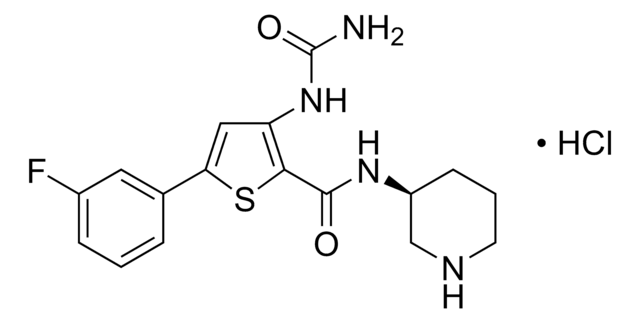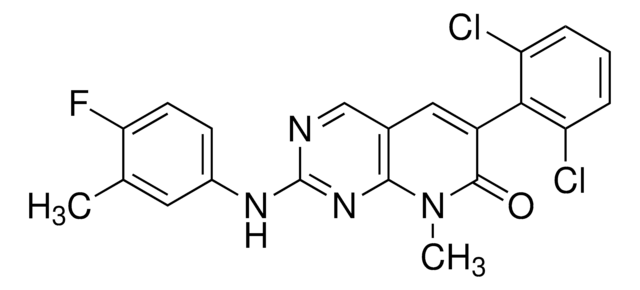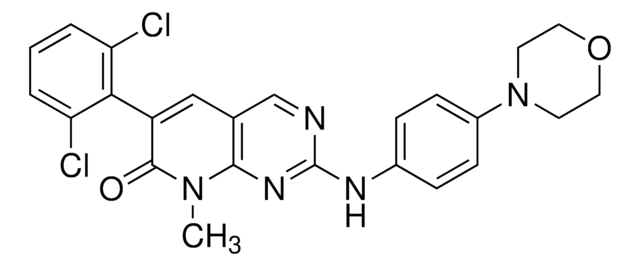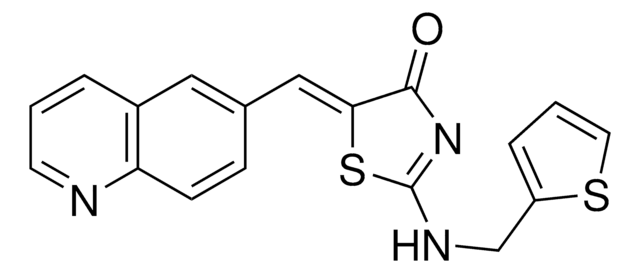PZ0116
PD-166285 hydrate
≥98% (HPLC)
Synonym(s):
6-(2,6-Dichlorophenyl)-2-[[4-[2-(diethylamino)ethoxy]phenyl]amino]-8-methyl-pyrido[2,3-d]pyrimidin-7(8H)-one dihydrochloride hydrate
About This Item
Recommended Products
Quality Level
assay
≥98% (HPLC)
form
powder
color
yellow
solubility
DMSO: ≥20 mg/mL
H2O: ≥5 mg/mL
storage temp.
room temp
SMILES string
O.Cl.Cl.CCN(CC)CCOc1ccc(Nc2ncc3C=C(C(=O)N(C)c3n2)c4c(Cl)cccc4Cl)cc1
InChI
1S/C26H27Cl2N5O2.2ClH.H2O/c1-4-33(5-2)13-14-35-19-11-9-18(10-12-19)30-26-29-16-17-15-20(25(34)32(3)24(17)31-26)23-21(27)7-6-8-22(23)28;;;/h6-12,15-16H,4-5,13-14H2,1-3H3,(H,29,30,31);2*1H;1H2
InChI key
FHIIMEXCWLFXBU-UHFFFAOYSA-N
Application
Biochem/physiol Actions
Features and Benefits
signalword
Danger
hcodes
Hazard Classifications
Acute Tox. 3 Oral - Aquatic Chronic 4
Storage Class
6.1C - Combustible acute toxic Cat.3 / toxic compounds or compounds which causing chronic effects
wgk_germany
WGK 3
flash_point_f
Not applicable
flash_point_c
Not applicable
Choose from one of the most recent versions:
Certificates of Analysis (COA)
Don't see the Right Version?
If you require a particular version, you can look up a specific certificate by the Lot or Batch number.
Already Own This Product?
Find documentation for the products that you have recently purchased in the Document Library.
Customers Also Viewed
Our team of scientists has experience in all areas of research including Life Science, Material Science, Chemical Synthesis, Chromatography, Analytical and many others.
Contact Technical Service










